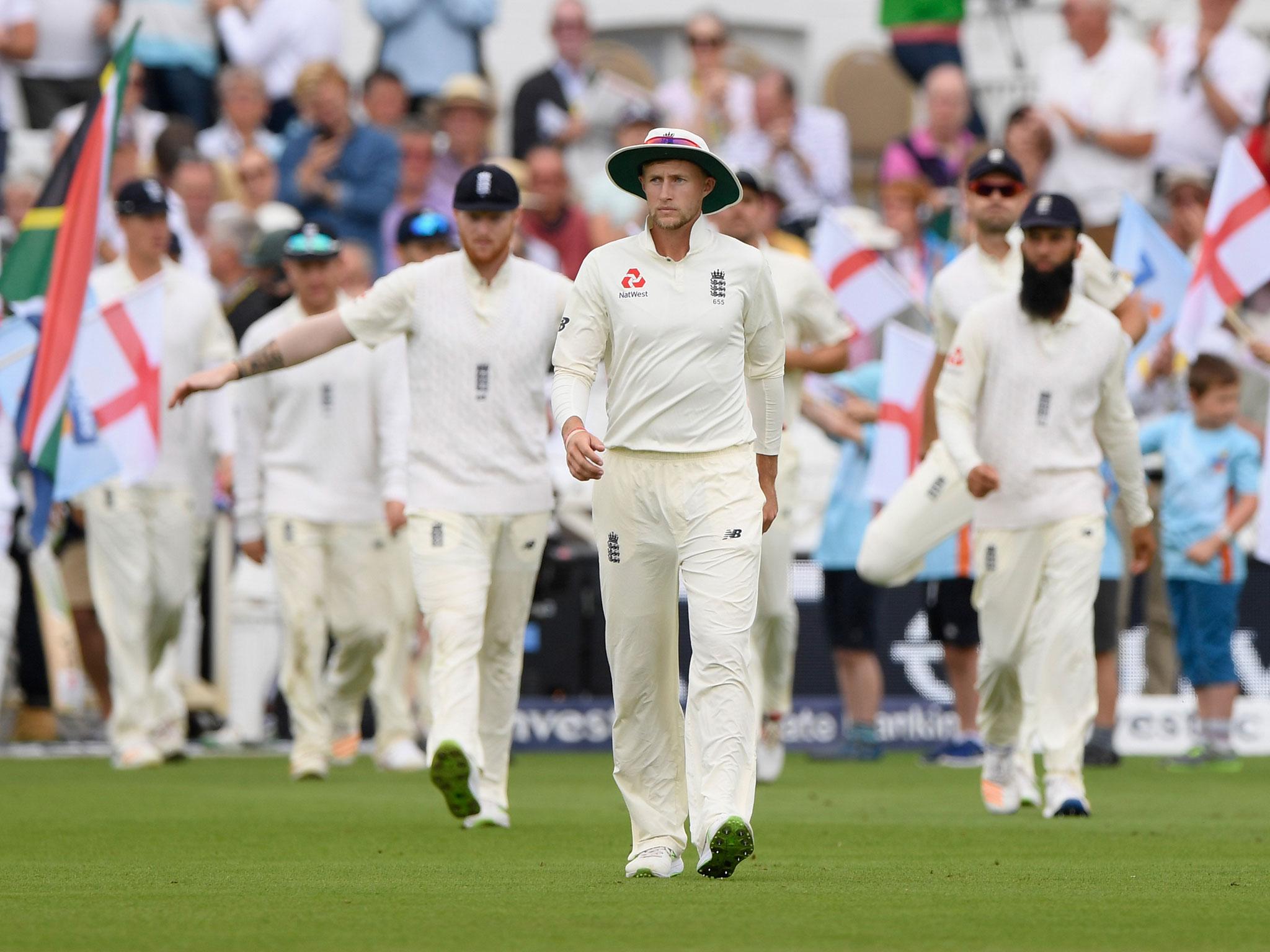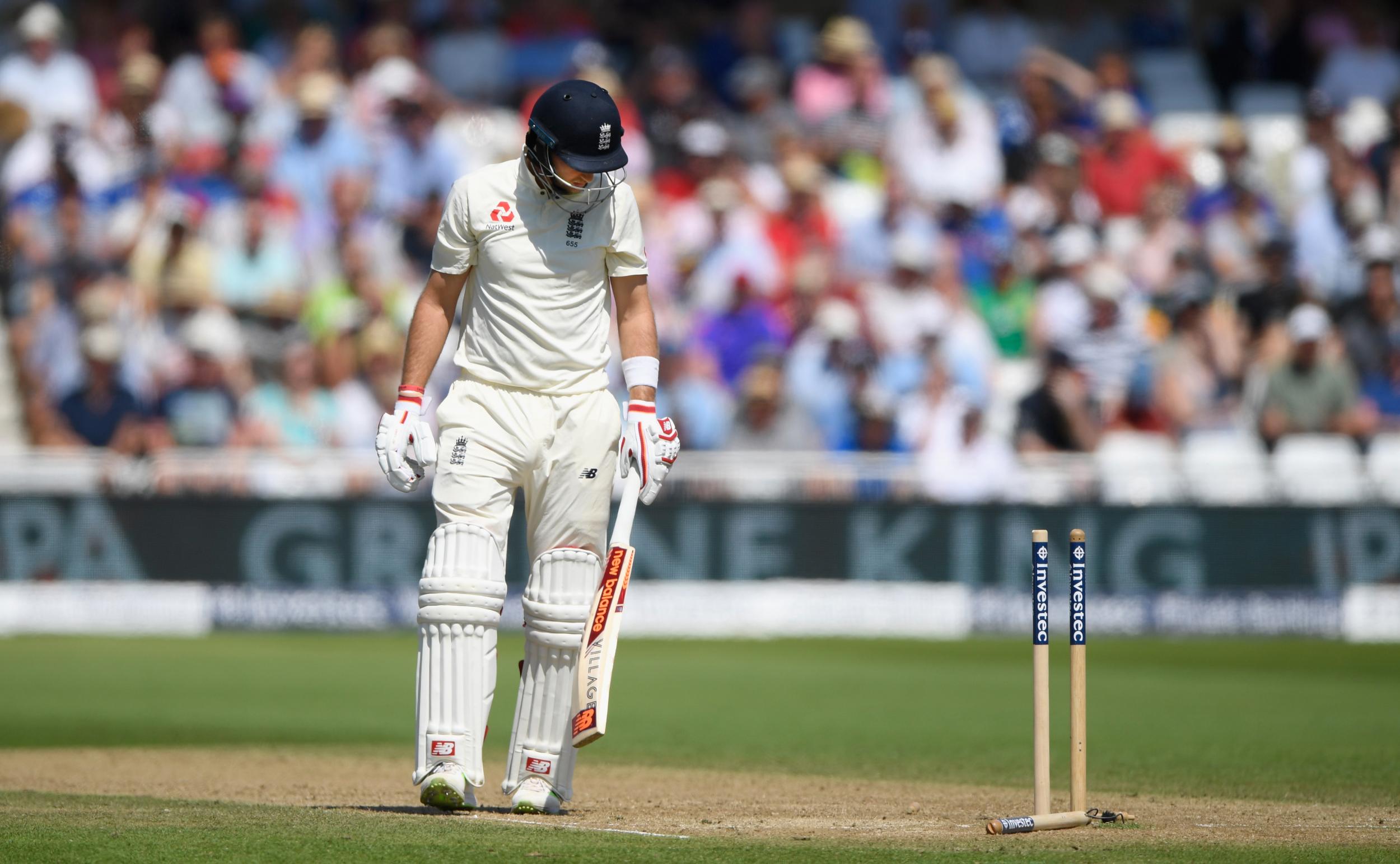England players set for bumper pay rise from 2020 but counties split over proposed salary cap increase
Exclusive: ECB windfall will find its way into big names' pockets but counties are divided over talk of increasing the wage ceiling that currently governs their playing staff

Your support helps us to tell the story
From reproductive rights to climate change to Big Tech, The Independent is on the ground when the story is developing. Whether it's investigating the financials of Elon Musk's pro-Trump PAC or producing our latest documentary, 'The A Word', which shines a light on the American women fighting for reproductive rights, we know how important it is to parse out the facts from the messaging.
At such a critical moment in US history, we need reporters on the ground. Your donation allows us to keep sending journalists to speak to both sides of the story.
The Independent is trusted by Americans across the entire political spectrum. And unlike many other quality news outlets, we choose not to lock Americans out of our reporting and analysis with paywalls. We believe quality journalism should be available to everyone, paid for by those who can afford it.
Your support makes all the difference.England’s leading cricketers could be set to receive a significant pay rise once the ECB’s new TV deal kicks in from 2020. The Professional Cricketers’ Association advocates an increase in the value of central contracts, but already faces staunch opposition from counties, who are angry and divided over its support to increase the salary cap in county cricket.
The PCA expects the salary cap to rise and will enter discussions with the ECB about the matter over the coming months. The organisation also anticipates that central contracts - currently worth about £1 million a year for leading players in all three formats - will increase to reflect the additional revenue that England’s leading cricketers have secured for the governing body. It is understood that the ECB is still considering how to spend the extra money gained in the new TV deal, but professional players believe they are entitled to a fair portion of the increase.
The new broadcasting contract, worth £1.1 billon from 2020-24 - a rise of almost three times on the annual value of the current deal - has opened up the possibility of counties being allowed to spend more on the playing budgets for their squads, especially as they are guaranteed to receive an extra £1.3 million per year by dint of agreeing to the new eight-team domestic T20 competition.
For most counties, annual incomes and levels of debt are such that the current salary cap - £2 million per season, with London weighting - is significantly above their spending on players. Surrey, who are a notable exception - around 140,000 attended the club’s T20 Blast matches at The Oval in 2016, giving the club riches the envy of all the other counties - support the cap increasing.
"It is important that players receive an equitable share of the money that cricket generates, whether that be from TV rights, sponsorship or ticket sales,” said Richard Gould, Surrey’s chief executive. “We need to be able to develop, retain and attract the very best cricketers, in order for the game in England to thrive in the long term.”
The view is not widely shared among the poorer counties. “I don’t want it to increase as I believe there is plenty of slack in the system with only one or two at the cap already,” said the chief executive of one county. “I expect others to be in a similar place and will use the gap in current salaries and the cap to try and become more competitive.”
Another chief executive said that while players should be rewarded well, this needed to be done in a sustainable way, leaving sufficient money to invest in grassroots. “What we must not allow is what has happened in football and rugby.”

There is also a wide concern that an increase in the salary cap threatens to add to the gulf between counties, and erode the competitive balance of the county game.
But even if the salary cap is not increased - or, as appears more likely, is only increased modestly - the coming years could see the transfer system in the county game “become formalised with bigger sums being offered for player release,” a chief executive said. Transfers becoming ever-more common would inevitably lead to greater concentration of talent at the wealthiest counties.
Current events in Australia - where there is an unresolved impasse between the board and the players association over the new terms of player contracts - provide further evidence of how player power has risen in the age of domestic T20 leagues, because national boards no longer have effective monopolies over their players.
A rise in the value of central contracts - and an increase in the salary cap - would make it easier for the ECB to prevent players quitting international cricket prematurely for financial reasons, as has long occurred in the West Indies and other countries. Higher earnings could also make cricket more attractive for young athletes who excel in multiple sports.
But improvements in county finances, and any increase in the salary cap, could have less desirable consequences for other nations. Greater salaries available in county cricket could make moving to England more attractive for cricketers from abroad - either as overseas players or, for those who qualify through family, as local players. Even the probable end of Kolpak-qualified players in the UK, after Brexit, might not stop foreign nations losing cricketers to the English system.
Join our commenting forum
Join thought-provoking conversations, follow other Independent readers and see their replies
Comments